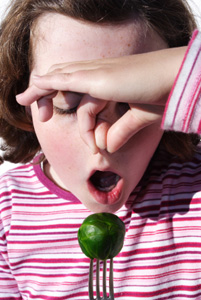 Several articles can be found online claiming that “selective eating” is being considered for the updated Diagnosis and Statistical Manual as an eating disorder like Anorexia Nervosa or Bulimia Nervosa. The American Psychiatric Association is due to publish the DSM-5 in mid 2025. Reports on this addition to the DSM vary. One article I read claimed that it is the American Psychological Association not the American Psychiatric Association considering the change; however, it
Several articles can be found online claiming that “selective eating” is being considered for the updated Diagnosis and Statistical Manual as an eating disorder like Anorexia Nervosa or Bulimia Nervosa. The American Psychiatric Association is due to publish the DSM-5 in mid 2025. Reports on this addition to the DSM vary. One article I read claimed that it is the American Psychological Association not the American Psychiatric Association considering the change; however, it
is understandable that someone outside the field might mix up APA with APA.
A blog on the American Psychological Association website skeptically commented: nowhere on the American Psychiatric Association’s draft DSM 5 website on eating disorders is the term “selective eating” or “picky eating” mentioned (searches for such terms also turned up nothing on the draft DSM 5 website). It seems like quite a stretch that a disorder not even listed in the draft version of the DSM-5 would make it into the final version.
Most articles claim “selective eating” will be a disorder in the Not Otherwise Specified section of Eating Disorders. I would find it surprising for “selective eating” to even be listed in the “Conditions requiring further study” appendix. However, I did find on the American Psychiatric Association’s draft DSM 5 website a proposed Avoidant/Restrictive Food Intake Disorder that would include individuals who do not eat enough/show little interest in feeding, individuals who only accept a limited diet in relation to sensory features, and individuals whose food refusal is related to aversive experience. The term “selective eating” is not used, but it could refer to picky eaters.
More research is being done on the phenomenon of picky eating, including the University of Pittsburgh and Duke University, who have created a national public registry of picky eating. The registry gives people a place to report their personal (possibly unusual) food preferences. Most children go through a phase of personal food restriction; some adults never outgrow this. More bland, pale-colored foods tend to be favored by picky eaters (think pasta, cheese pizza, mashed potatoes). Most picky eaters seem to enjoy chicken fingers and French fries.
Distress to oneself or others is a required hallmark of most disorders. I have not known anyone who was caused great distress by picky eating behavior; however, picky eaters may be uncomfortable in social situations that center around food and may have difficulty at restaurants. Others who try to prepare or serve food to a picky eater may experience distress trying to conform to the restrictions of their loved one.
One of the pickiest eaters I know will try new things if it is presented (physically and psychologically) to him in the correct way. Children that are encouraged to try new things regularly can have more diverse dietary habits than most adults. I wonder how much new was presented to now picky adults when they were children. Picky eating can also be a mild obsession with food. Each of these origins would call for a slightly different treatment. I also wonder if “selective eating” will be covered by insurance and to what degree.
Has someone else’s or your own picky eating caused distress for you? Do you think selective eating qualifies as an eating disorder? Do you think we should leave the picky eaters to their eccentricities?
Also Read:
